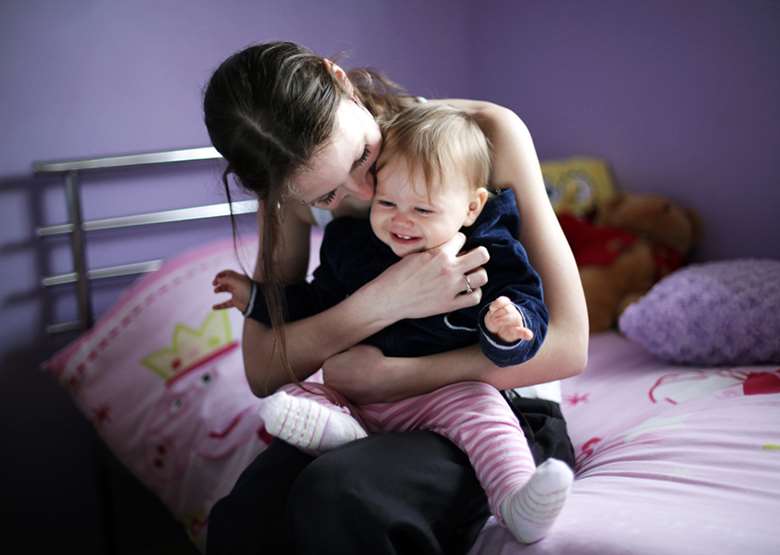How teens share lessons in becoming a parent
Jo Stephenson
Monday, April 29, 2013
Young parents are getting back into education by teaching other teenagers what effect bringing up a baby can have on their lifestyle

Project
Straight Talking
Purpose
To prevent teenage pregnancy and boost young parents’ skills and wellbeing
Funding
From fundraising, charity appeals, schools, trusts, and grants including £147,000 from the Nationwide Foundation
Background
Hilary Pannack was already working with young parents when she was asked by a local school to devise an education programme around teenage pregnancy and parenthood. She went on to develop the Straight Talking peer education scheme, which has now been going for 16 years. The UK’s teenage conception rates are still the highest in Western Europe so prevention projects like this are vital, says Pannack. “Young people may know how not to get pregnant but they also need to know why not to get pregnant,” she says. “They need a reason to change their behaviour.”
Action
Straight Talking started in Kingston-upon-Thames. It now operates in several London boroughs including Hounslow, Newham, Southwark, and Barking and Dagenham as well as in Birmingham.
It helps prevent young people from becoming pregnant but also boosts young parents’ confidence, skills and employability and gets them back into education. Teenage mums and young dads are trained to deliver the five-week programme in schools. “If a young person is disengaged from education, getting them back into school from the teaching side is something of a revelation,” says Pannack. “We’re saying to them: ‘You’re the experts, you have got something to give’.”
It generally consists of one-hour weekly lessons and can be tailored to fit in with a school’s timetable. The interactive sessions include getting pupils to experience the difficulty of manoeuvring a pushchair around, a raffle for suitable housing, and hearing a tape of a screaming baby while they try and get on with tasks. “Boys always try to turn it down but we tell them they can’t turn a baby down,” says Pannack.
Outcome
There have been four external evaluations of Straight Talking over the past 12 years. Deloitte undertook the most recent, last July. It found the scheme generated a social return on investment of £8.93 for every pound invested over five years. It concluded that one of the main benefits was tackling disengagement and low aspirations among the young parents involved. All of the young people who were not in education, employment or training gained valuable employability skills through the programme, while 95 per cent either moved onto further training or employment or accessed other forms of employment, education and training while still working with Straight Talking.
An evaluation by the Tavistock Institute in 2009 found pupils’ perceptions of teenage parenthood had changed, as had ideas about what age it was best to have a baby.
When asked when they would like to have baby, before the course, 50 per cent said 20 to 24, 39 per cent said 25 to 29, six per cent said at least 30 while five per cent said under 20. After the course, 47 per cent said they would like to be 25 to 29, 41 per cent 20 to 24, nine per cent over 30, and three per cent saying under 20.
When asked about what they had learned from the sessions, 63.9 per cent said, “what it’s really like if you do have a baby when you’re young”; and 42.6 per cent said they had learned “why you shouldn’t get pregnant when you’re young”. The proportion that agreed with the statement, “it’s okay to have a baby when you’re young because you get money and support”, reduced from 11 per cent before the course to five per cent after.
A questionnaire six months later explored the long-term impact of the course. It found that 81 per cent thought Straight Talking had made them realise that looking after a baby was hard work and 78 per cent said they had learned about the need for financial security before having a child, while 77 per cent said the course had made them think they should work harder at school to get a good job.
If you think your project is worthy of inclusion, email supporting data to ravi.chandiramani@markallengroup.com




